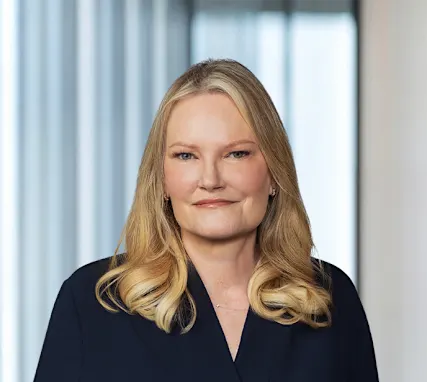Singapore Foreign Minister Vivian Balakrishnan addressed Parliament on 28 February 2022 and confirmed in an unprecedented move that Singapore would impose unilateral sanctions on Russia for its invasion of Ukraine. Traditionally, Singapore imposes sanctions on other states based on United Nations resolutions by way of the Monetary Authority of Singapore (MAS). This is the first time since 1978, when Vietnam invaded Cambodia, that Singapore has imposed such sanctions.
In doing so, Singapore has brought itself in line with the ‘first wave’ of sanctions imposed by the UK, U.S. and EU in response to Russia’s aggression.
Singapore has broken away from the ASEAN party line and condemned Russia’s actions. The Foreign Minister espoused the fundamentality of sovereignty, political independence and territorial integrity, principles of particular importance to a small state such as Singapore, whose foreign policy is concerned with the survival of such states within the global arena.
On 5 March 2022, the Singapore Ministry of Foreign Affairs formally released Singapore’s sanctions, which fall into two broad categories:
- Export controls on items that may be used as weapons in Ukraine or to contribute to offensive cyber operations.
- Financial measures to which all financial institutions in Singapore will be subject that target Russian banks and entities, and fundraising activities benefiting the Russian government.
Export controls
A ban will be implemented on the export, transit and transhipment of all items under the Strategic Goods (Control) Order 2021 which (i) are listed as ‘Military Goods’, and (ii) fall under the ‘Electronics’, ‘Computers’, and ‘Telecoms and Information Security’ categories of the List of Dual-Use Goods, which may have both military and commercial uses.
Financial measures
Financial institutions in Singapore will be prohibited from:
a) Entering into transactions or establishing business relationships with four specified Russian banks: VTB Bank Public Joint Stock Company, The Corporation Bank for Development and Foreign Economic Affairs Vnesheconombank, Promsvyazbank Public Joint Stock Company, and Bank Rossiya. For existing relationships with these banks, all financial institutions must freeze any assets and funds.
b) Providing financing or financial services in relation to the export of goods subject to Singapore’s export controls, from Singapore or any other jurisdiction.
c) Providing financial services to designated Russian non-bank entities involved in the export of controlled goods. For existing relationships with these entities, all financial institutions must freeze any assets and funds. Further details of which entities fall under this category will be provided.
d) Facilitating fundraising activities by the Russian government and central bank, or any entity owned or controlled by them or acting or their behalf. This applies to the sale and purchase of new securities, and prohibits participation in making, or financial services that facilitate new fundraising by, any new loan to these entities.
e) Entering into transactions or providing financial services in the (i) transport, (ii) telecommunications, (iii) energy and (iv) prospecting, exploration and production of oil, gas and mineral resources sectors in Donetsk and Luhansk.
f) Entering into or facilitating any transactions involving cryptocurrencies which circumvent the above prohibitions.
You can read the full sanctions wording on mfa.gov. MAS is expected to release further detailed directions to all financial institutions. Given the EU, U.S. and UK have continued to impose increasingly tough measures, particularly on the Russian financial sector, this does beg the question of whether and to what extent Singapore may follow suit.
What does this mean for you?
Russia’s trade with Singapore is limited, accounting for just 0.1 per cent of Singapore’s total exports, and 0.8 per cent of its total imports. Nevertheless, laboratory reagents, navigation equipment and integrated circuits have been among the top products exported to Russia in the last few years, and these may have military applications and fall subject to the new export controls. Singapore’s export controls extend not only to goods originating in Singapore, but also to those transiting via Singapore’s vast port network. Exporters and shippers should therefore pay extra attention to the items they are carrying to ensure they do not fall foul of the sanctions.
All companies should assess their risk profile in light of the new sanctions and conduct careful KYC checks to ensure that they are acting in concert not just with the Singapore sanctions, but also with the regimes of any other applicable jurisdictions such as the UK, EU and U.S.. For instance:
- Many of the U.S. sanctions imposed have an extra-territorial element (so-called ‘secondary sanctions’) and, in any event, energy and commodity traders dealing with U.S. dollar-denominated contracts must pay special regard to the complex U.S. sanctions regime.
- As an international hub, Singaporean entities must be mindful that UK, EU and U.S. nationals will be required to adhere to the sanctions imposed by those jurisdictions, even if the companies they work for do not.
- Contractual counterparties based in jurisdictions with more draconian sanctions will be obliged to comply with them and may be able to rely on protective language to excuse themselves of contractual performance.
Financial institutions in Singapore must be cautious not to enter into transactions with sanctioned entities or their affiliates and to cease investments into newly issued Russian securities backed by the Russian government or central bank. Technology and energy companies in particular should be aware of their goods which may have a military function and be extremely high-risk.
Beyond the sanctions, companies must be mindful of the reputational risk which comes with dealing with Russia – numerous and varied companies, ranging from shippers to fast-food chains, have already suspended their operations in Russia. Moreover, issuers listed on the Singapore Exchange (SGX) should keep in mind the guidance already released by the SGX that sets out the expectations if an issuer or associated entity is exposed to sanctions-related risks.
Reed Smith will continue to monitor the evolving situation and report on further developments. We are available to assist and offer guidance regarding compliance with international sanctions regimes and regulatory measures across multiple jurisdictions and practice areas.
Reed Smith LLP is licensed to operate as a foreign law practice in Singapore under the name and style, Reed Smith Pte Ltd (hereafter collectively, "Reed Smith"). Where advice on Singapore law is required, we will refer the matter to and work with Reed Smith's Formal Law Alliance partner in Singapore, Resource Law LLC, where necessary.
Client Alert 2022-080




